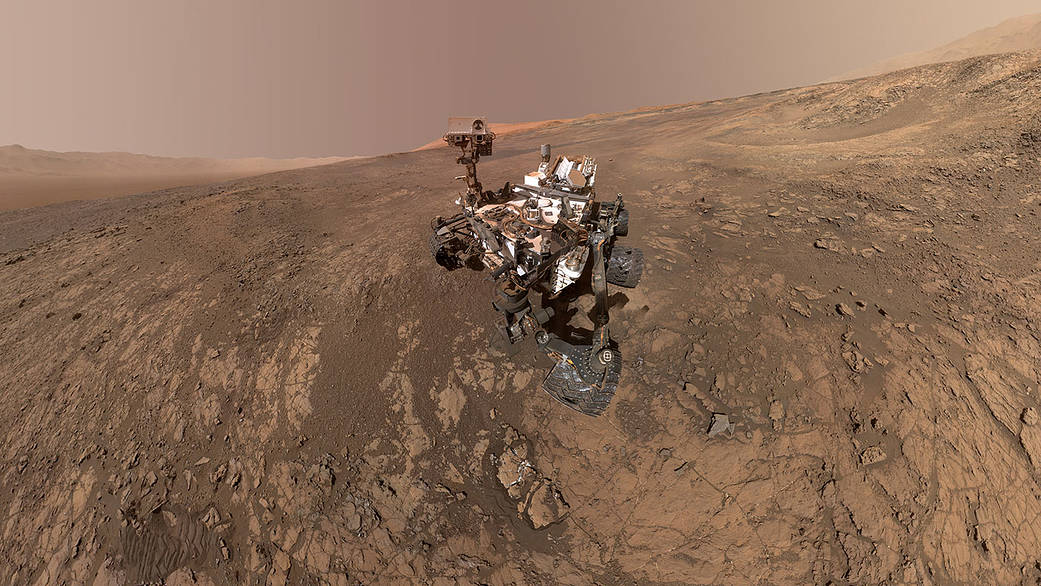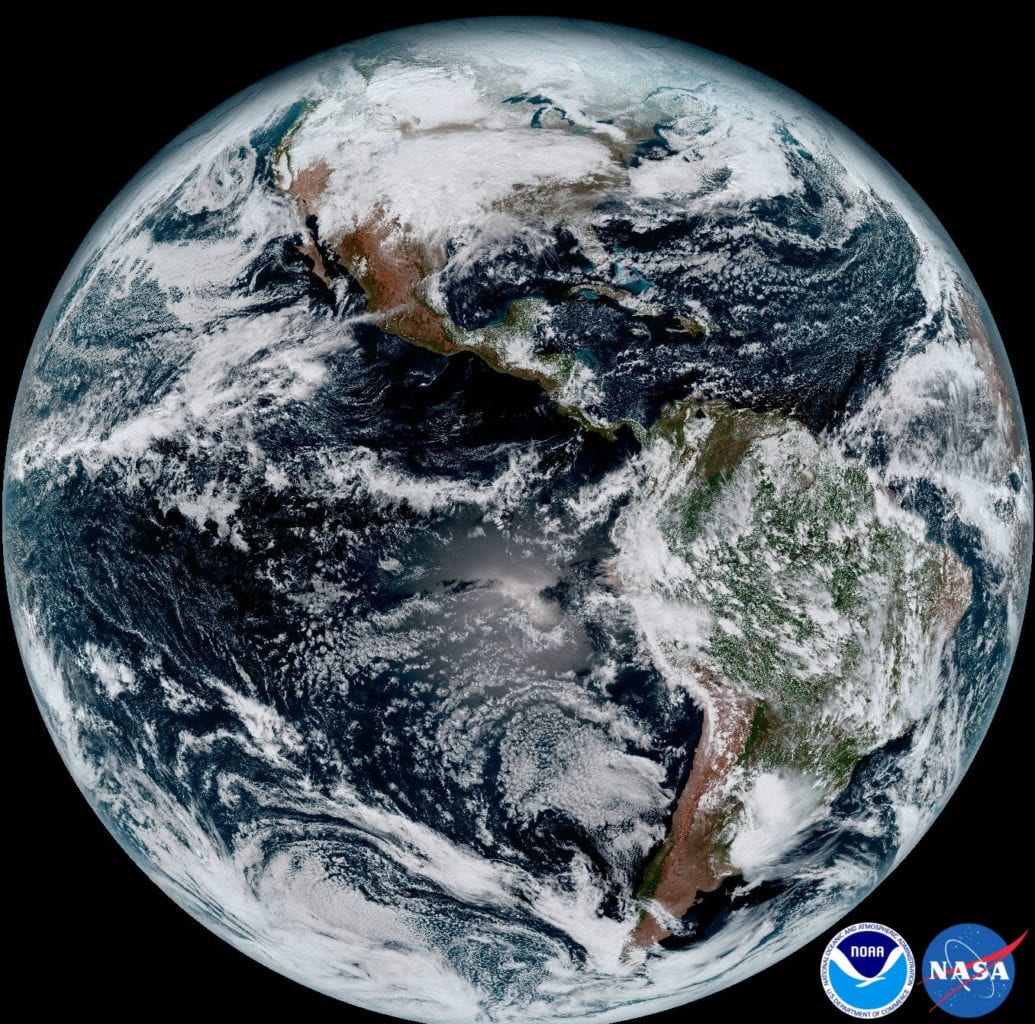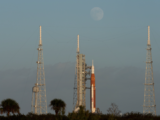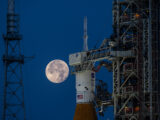Unfortunately, that probably won’t happen –

This selfie of NASA’s Curiosity Mars rover shows the vehicle on Vera Rubin Ridge, which it’s been investigating for the past several months: NASA.
The Big Picture –
By Glynn Wilson –
WASHINGTON, D.C. – It’s Sunday in the campground just 13 miles north of the White House and summer is right around the corner after a few glorious spring days just over the District of Columbia line in Maryland. We had a special visitor from NASA speak at a campfire program Saturday night who worked as an engineer on the Curiosity mission to Mars. So my thoughts are focused on our new interest in sending astronauts to the moon again, with a plan to go on to Mars.
Plus, there several new books out about the moon landing, fleshing out all the pros and cons of all this space exploration and travel.
Why Did the Moon Landing Matter? A Slew of New Books Offer Answers
I’ve already written about my thoughts on the Trump administration’s framing of the new mission. I tend to support the work of the National Aeronautics and Space Administration, which was set up by Republican President Dwight D. “Ike” Eisenhower in the late 1950s as a civilian agency, not a military branch, after he faced criticism from Senator John F. Kennedy, who was running for president.
But I am skeptical about how this administration is approaching the mission, couching some of the language in blatantly nationalistic and military terms.
There Should Be a Higher Purpose for the Moon Shot Than War and Empire
When I asked the engineer, Florence Tan, the deputy chief technologist of the Science Mission Directorate, a direct question about whether the planned new base on the moon would have a military mission, she gave me the standard NASA statement that one would expect.
“Oh, no. We at NASA are interested in the science,” she said sincerely.
“And,” she smiled and said, “our budget is not being cut.”
So NASA will go along with Trump and Vice President Mike Pence to continue funding for their research and development mission to explore the planets, and not get bogged down in the military mission, as long as the federal tax money continues to flow. The military mission will be handled by another federal agency, the Department of Defense.
But it is hard to separate the two things when you think about it.
As I was thinking about what I would write about this today, I had a visit in my campsite from another engineer who worked for NASA back in 1963 on a project to design a nuclear rocket for a manned mission to mars, a mission that was ultimately scrapped. David Ebert and his brother had escaped a nearby retirement community for the weekend to camp out for a couple of days and hike, and he walked right up to my site this morning and we began to talk.
When I put the question to him, it seemed obvious to him why we went to the moon in the first place.
“It was to win the space race with Russia and win the coming wars in space,” he said. “To make America great again,” he grinned.
But wait. That’s not how the original mission was framed. It was to be a strictly civilian and non-partisan mission (although the Democrats were using it as an issue against the Republicans in 1958-64), and it was Republican Richard Nixon who was in the White House when the moon lander touched down.
The original stated purpose was to benefit all of humanity, not just Americans, and the purpose was not supposed to be for the militarization of space.
“We set sail on this new sea because there is new knowledge to be gained, and new rights to be won, and they must be won and used for the progress of all people,” Kennedy said, not just Americans.
“There is no strife, no prejudice, no national conflict in outer space as yet,” Kennedy continued. “Its hazards are hostile to us all. Its conquest deserves the best of all mankind, and its opportunity for peaceful cooperation may never come again.”
So even Kennedy was hinting then about a military mission, while urging against it.
But to an engineer like my visitor, that’s just naive. The mission was about the dominance of the U.S. military all along. Remember what Ike said about the “military industrial complex?”
So what is a Senator on the Armed Services Committee from Alabama to do when faced with a reelection campaign of his own in 2020?
Just this week, before departing for the Paris Air Show, U.S. Senator Doug Jones, the Democrat from Alabama, sent out a press release with an attached letter to Patrick M. Shanahan, Trump’s Acting Secretary of Defense, making the case for why the new “Space Force” should be located in Huntsville, Alabama.
“Redstone Arsenal is already home to a number of Defense Department and civilian space entities,” Senator Jones, a member of the Senate Armed Services Committee, wrote. “Proximity to these existing DoD and civilian facilities would be an incomparable advantage to Space Command. Additionally, Redstone Arsenal has ample space, capacity, connectivity, and support for SPACECOM, and the Redstone airfield, as well as Huntsville International Airport, can easily accommodate C-17 aircraft. Moreover, the Huntsville area provides unmatched quality of life and low cost of living in one of the most military-friendly regions of the country.”
“The Huntsville, Alabama area clearly fulfills – and surpasses – all of the criteria for Space Command Headquarters,” he continued. “The state of Alabama would welcome Space Command to join Redstone’s renowned and first-rate installation. I strongly recommend the selection of Huntsville as headquarters for Space Command.”
Space Command’s creation was approved by Congress in 2018 after direction from the president. Locations will be evaluated based on mission requirements, capacity, environmental impact, and cost. Other candidate locations include Air Force bases in Colorado and California. The Air Force expects to select a preferred location sometime this summer.
So no matter what my opinion is, this thing is going forward. We are going back to the moon, this time with a plan to build a permanent base (an idea that was rejected in the 1960s as too expensive). And this time, we have a plan to send astronauts to Mars, not from Earth but from the moon.
This could be a good thing with the right kind of leadership. The problem is it could also be a really bad thing, with the wrong kind of leadership.
The original moon shot was criticized by environmentalists like Rachel Carson of Silent Spring fame, and Civil Rights activists like the National Urban League’s Whitney Young.
“It will cost $35 billion to put two men on the moon,” Young complained. “It would take $10 billion to lift every poor person in this country above the official poverty standard this year. Something is wrong somewhere.”
“In the pre-Sputnik days, it was easy to dismiss so much as science-fiction fantasies,” Carson wrote to the woman she loved, Dorothy Freeman, in February 1958. “Now the most far-fetched schemes seem entirely possible of achievement. And man seems actually likely to take into his hands — ill prepared as he is psychologically — many of the functions of ‘God.’”
Of course another reason for the moon shot — and the new mission — is a patriotic one, to try to inspire a new generation to “venture to the stars” in all kinds of ways. The first moon landing did unite the people of the country and the world — for one brief moment — when millions saw the first picture of Earth taken from space.

The new “Blue Marble” from NOAA’s satellite GOES-16 situated in an orbit 22,3000 miles above the Earth: NASA
But that moment was lost back in 1969, when Nixon expanded the war in Vietnam to Laos and Cambodia.
If Trump just wants an excuse to fire up his base to turn out and vote in 2020, the stated military mission will dominate.
But if we had some real leadership in charge not just interested in winning the next election, we might do better to think of this as a way to unite all the people of the world to join us in another justification for the mission now being promoted by the private contractors who are in some ways behind this new push to explore space. They seem to think we need to do these research missions now to potentially ensure the survival of the human species, since it seems obvious we can’t seem to get our shit together enough to save this planet from the ravages of climate change due to global warming from the burning of fossil fuels.
Here’s a parting thought. If we had discovered oil on the moon, oil men would already be living there, drilling ’till their hearts were content. Nevermind the little known international agreement to avoid interplanetary contamination. Politics and war seem to trump the environment every time.
Let’s stop and think about it at least before we do it. There should be a lively public debate.
Will that happen in today’s divided Washington? Of course not. We will forge ahead in our hubris and the consequences be damned.
If there is a god, God help us all. If not, the Earth will probably survive a few more billion years anyway, taken over by the ants and cockroaches after we make ourselves as extinct as the dodo bird and the dinosaurs.














Glynn: There is some great research on IKE and his misguided thoughts on an expanded NASA type program which should have been dubbed “vulture capitalist in space”… Separate and apart from that, I seriously think more rational people should carefully examine the “Val Thor” section regarding the Eisenhower administration and how/why government interest in this area peaked during this time period. However, pragmatically, under this administration “we” need a space force to evacuate the 1% after they destroy this planet and can afford to relocate somewhere else?